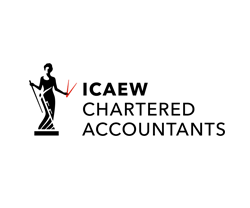July 29th, 2019
Should I Incorporate My Property Business? Part II
Tax planning, or “the benefit of hindsight”
When a landlord asks, “Should I incorporate?” we need to really examine the deeper meaning behind that question.
Invariably, the landlord is asking if they’ll pay less tax if they put their property into a limited company. This should be re-framed so as to question if they’ll be better off over the whole lifetime of property ownership. This shifts the question from a narrow viewpoint – usually that of just income tax – to the wider picture.
When considering the merits of personal ownership or company ownership, we need to break down the property life cycle into three phases:
- Phase 1: The initial purchase or transfer
- Phase 2: Letting
- Phase 3: Retirement
This means that when we consider the question of incorporation, by necessity we need to make various assumptions on what will happen in the future.
I’ll be considering these phases individually in this blog series but, first, what do we mean by “tax planning”?
Tax planning: a brief introduction to chaos theory
Tax planning essentially boils down to comparing two or more options to find out which one yields the greater benefit. Short-term scenarios or those with few variables – such as whether a company should purchase or lease a van – can be modelled easily and a fairly accurate answer given.
Once we start trying to model scenarios with multiple variables over a long time frame, we need to begin to make assumptions. The tax planning exercise then becomes increasingly chaotic. “Chaotic” in this context is used in its mathematical meaning, that is to say even small changes to our initial assumptions will make a big difference over a long period of time. This is known as the butterfly effect.
A kaleidoscope of butterflies
Tax planning becomes especially problematic for younger property owners who may potentially have 20 or more years of property ownership ahead of them. A lot can and does happen in that sort of time frame. Here’s a quick list off the top of my head:
- Large pay rises
- Other income that fluctuates year-on-year
- Redundancy or long term sickness
- Marriage, children, divorce
- Early or later retirement
- How long you survive into retirement
- The amount of other income received in retirement
- Inflation
- Changes to interest rates
- Changes in taxation
- Legislative changes in property ownership
- Purchasing more properties
- Changes to long-term property strategy (sell to realise capital growth or retain for rental income)
The starting assumption when comparing two strategies is to assume the current conditions – personal circumstances, tax rates, etc – will continue into the future.
“What if?” analysis, which can model the impact of changes in interest rates (for example) on the cost of a particular strategy, can be used to refine the process. Lenders do this when they make variable rate mortgage offers: “If the Bank of England base rate increases to x% then your monthly repayment will rise to £y”. This, however, adds complexity to the planning exercise.
Other variables are extremely difficult to model for. Who knows what the UK tax system will look like in five years let alone 30 years? Just look back at the number of tax measures that have been introduced in the past three years alone.
Butterflies in your stomach
The general rule is still to keep property out of a limited company if at all possible.
The role of marriage or civil partnership can be crucial in achieving this. From this point on I’ll refer to spouses and civil partners under the catch-all “spouses,” purely for ease of writing.
Transfers of assets between spouses are exempt from stamp duty, capital gains tax and inheritance tax so this opens up a couple of valuable tax planning opportunities for landlords with smaller property portfolios.
From an income tax point of view, property can be transferred, in full or in part, to spouses with no or low income to reduce the overall tax paid on the annual property profits. This can take the property income completely out of higher rate tax and preserve entitlement to child benefit without the need to incorporate.
From a capital gains tax point of view, transferring half of the property to a spouse will mean you get two lots of the £12,000 capital gains tax allowance. So the first £24,000 of gain will be exempt from tax. Companies don’t qualify for this allowance.
Then again, this could all be scuppered by the spouse starting in a new job earning £50,000 per year!
So in summary, a change in your – or your spouse’s – personal circumstances can have a huge impact on whether incorporating would be the best option for you.
We’ll now move onto what I consider to be one of the most important future consideration: your plans for the property.
To sell or not to sell, that is the question
What are your long-term plans for your property business?
I don’t think I’ve ever received a definitive answer to this question from any of our landlord clients so you’re not alone if you’re unsure at this point.
The most common response is along the lines of whichever strategy leads to the lowest tax, but this makes the planning exercise extremely complex, with multiple scenarios in need of consideration. I think it is much better to have a clear strategy for your property and then choose whether to incorporate off the back of that strategy. Your strategy will comprise of two elements.
First, you need to consider what you will do with the profits you earn from the property:
- Spend them now or in the near future – holidays, children’s university fees, etc
- Reinvest them into expanding your property portfolio
- Leave them to accumulate
- A mixture of the above
Second, your retirement strategy:
- Keep the property – receive a rental income in retirement and pass the property on when you die
- Sell all property in a fire sale, realise a gain and use that gain to supplement retirement income
- Keep some properties and sell others
- Sell all properties but staggered over a number of years
Many of the other factors listed earlier will have an impact on your strategy so over the course of 30 or more years your strategy becomes subject to change. This means today’s good faith planning exercise can quickly become tomorrow’s bad advice with the benefit of hindsight.
We’ve now covered quite a bit on the future so in next week’s blog we’ll be shifting back to the present and considering the issues and costs associated with incorporation.
Back to Part I | On to Part III





